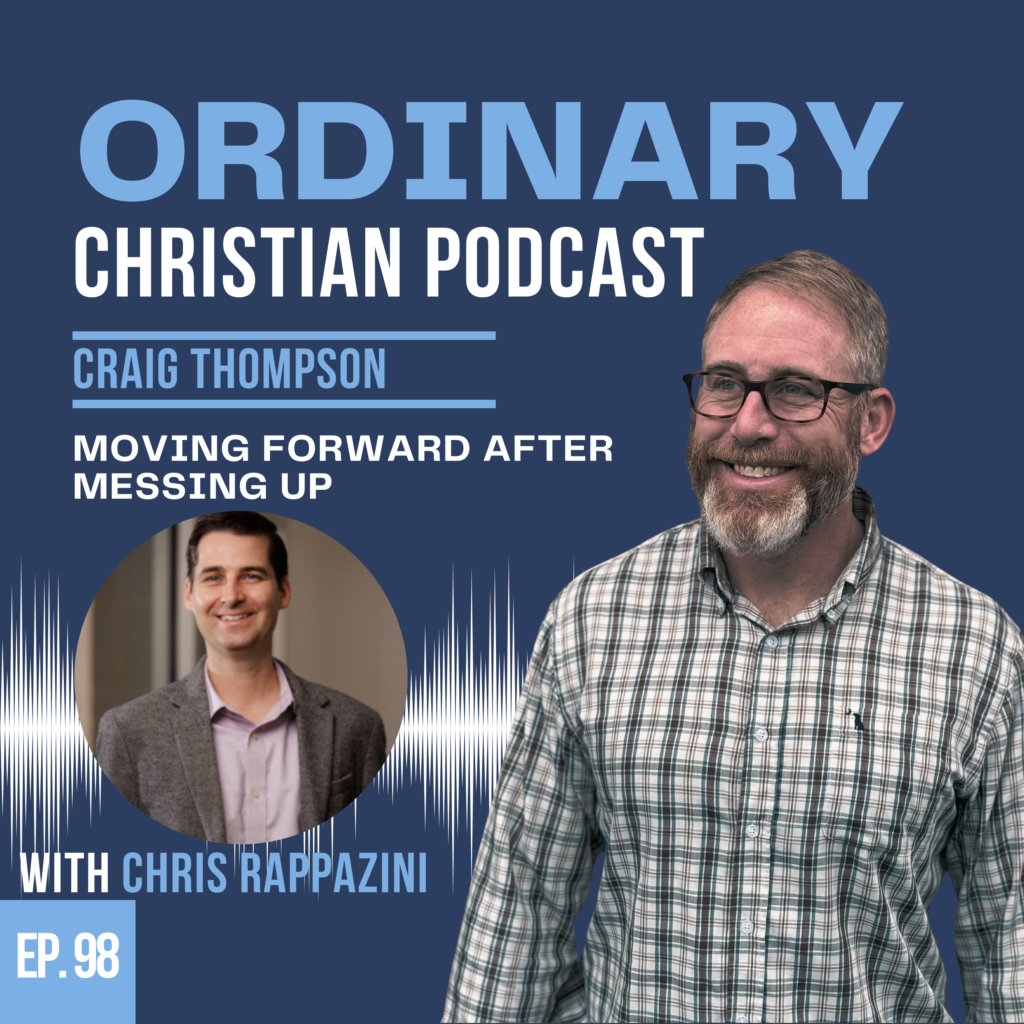Dr. Chris Rappazini, a professor of leadership, discusses his new book Moving Forward After Messing Up and the importance of second chances. He shares a personal story about his relationship with his brother and how it inspired him to write the book. The conversation explores the challenges of recognizing and accepting our mistakes, the role of empathy in ministry, and the practical implications of God’s grace. The episode highlights the need for vulnerability and authenticity in building strong relationships and offers a fresh perspective on the prodigal son story.
In this conversation, Dr. Rappazini and I discuss the importance of preaching to the people that God has called pastors to, rather than preaching to an idealized church. We also explore the concept of forgiveness and humility in the context of dealing with prodigals and those going through deconstruction. Chris shares his personal experiences with his brother’s addiction and the role of community in the recovery process. The conversation concludes with a discussion on how Chris’s book, Moving Forward After Messing Up, can be used as a tool for group discussions and support.
Takeaways
- Recognizing and accepting our mistakes is the first step towards moving forward after messing up.
- Empathy and vulnerability are essential in building strong relationships and connecting with others who have experienced similar struggles.
- God is a God of second chances and is willing to forgive and redeem us, no matter how far we’ve strayed.
- The prodigal son story takes on a new meaning when we realize that we are all prodigals in need of God’s grace.
- Theology should not be limited to academic study but should help us better understand and love God. Preaching should be tailored to the specific needs of the congregation and focused on helping them apply biblical principles to their lives.
- The best preachers are often found in small churches, where they intimately know their congregation and can speak into their lives.
- When dealing with prodigals or those going through deconstruction, it is important to approach them with love, humility, and a willingness to listen.
- Forgiveness and humility are crucial for both the person going through a difficult time and those supporting them.
- Community and support groups play a vital role in the recovery process, providing a safe space for sharing and healing.
- Chris’s book, ‘Second Chances: From Tragedy to Triumph,’ can be used as a resource for group discussions and as a conversation starter for those struggling with addiction or other challenges.
Sound Bites
- “Snow, rain, all in the same day, all in the same spot.”
- “The God of Second Chances”
- “God’s been in that place on your behalf.”
- “That’s good. That’s that’s strong.”
- “Preach to the people that God’s called you to pastor.”
- “The best preachers are the ones that you’ve never heard of.”
Chapters
00:00Introduction and Background
03:37Discussing the Book ‘Moving Forward After Messing Up’
11:09The Impact of Personal Struggles on Ministry
14:20The Prodigal Son Story: A New Perspective
20:05The Challenge of Denial
22:34The Practical Implications of God’s Grace
25:08Preaching to the People God Has Called You to
27:03The Best Preachers Are the Ones You’ve Never Heard Of
30:27The Role of Community in Recovery and Healing
39:45Using ‘Second Chances: From Tragedy to Triumph’ as a Tool for Group Discussions
Subscribe to The Ordinary Christian Podcast


